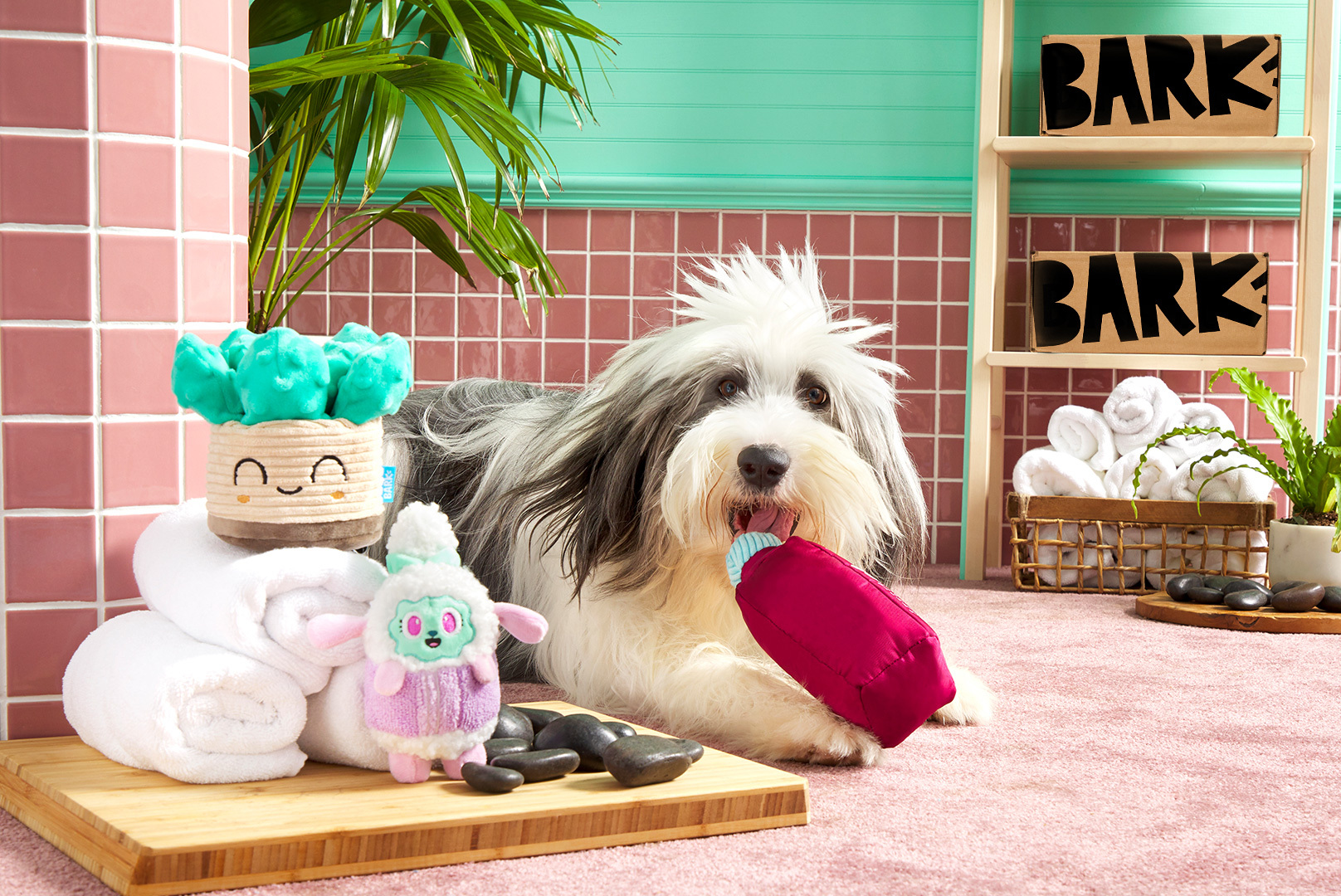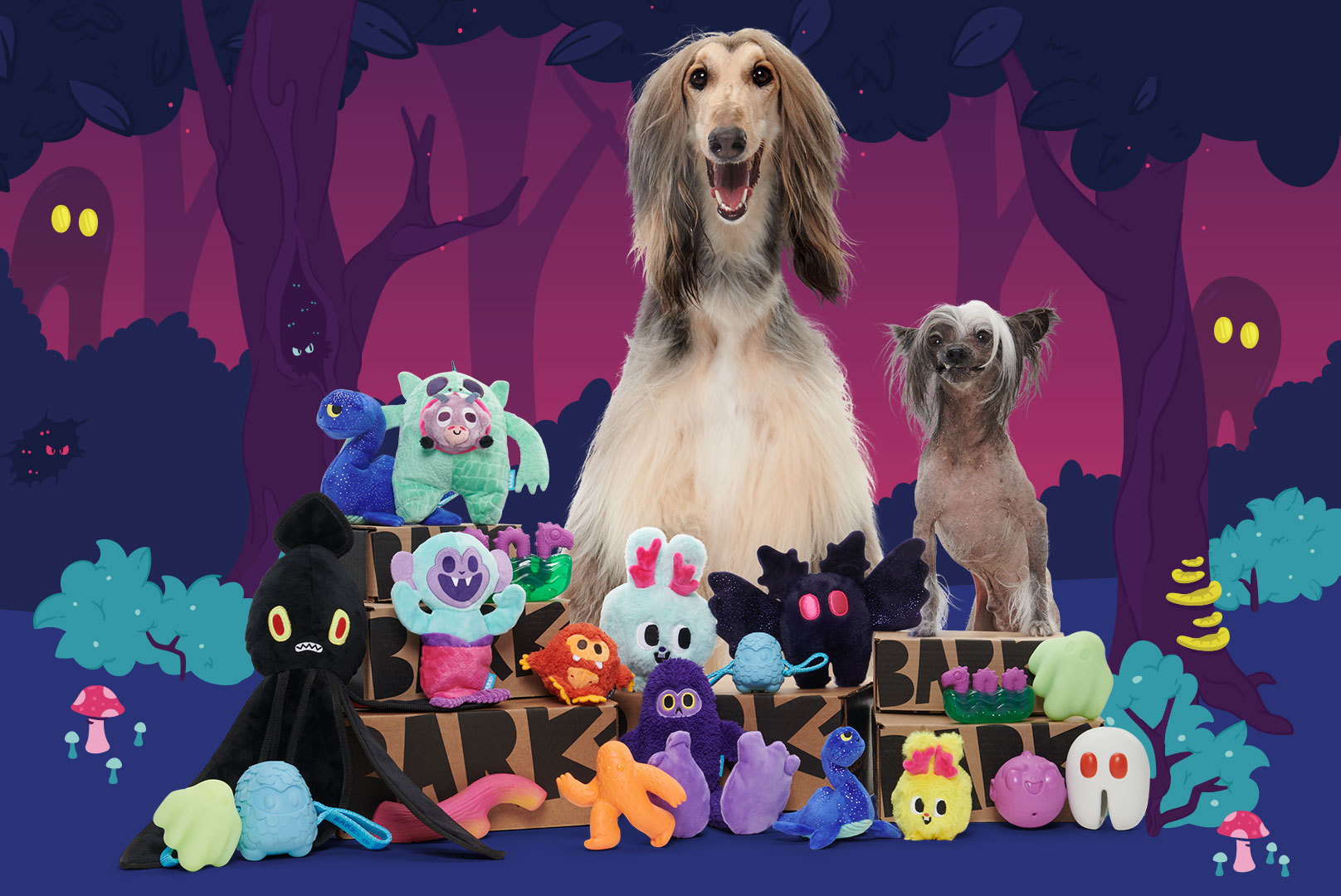For Pups With Short Attention Spans…
On average you can expect 10-15 happy years with your Goldendoodle. Lifestyle, exercise, and diet are all major contributing factors to lifespans, but genetics will also play a role, including what percentage of Golden Retriever to Poodle they are as well as their size, with smaller doodles typically living longer.
Between their lovey-dovey temperament and proclivity for playfulness, the goldendoodle brings oodles of joy—joy we can only hope will last forever. These puppies make friends for life, so you may find yourself wondering, just how long do goldendoodles live (and how can I make it even longer)?
Goldendoodles’ average lifespan ranges between 10-15 years,1 with slight variation depending on genetic disposition.
Though your doodle will one day cross the rainbow bridge, you’re sure to enjoy a long, happy life with them first. By understanding what factors affect goldendoodle lifespan, you may even be able to implement healthy habits that improve—and extend—your furry friend’s time on earth.
Understanding Lifespan for Goldendoodles
To determine the life expectancy of a mixed breed—whether we’re talking about poodle mixes or otherwise—you have to look at the parent breeds:2
- Golden retrievers average around 8-12 years
- Poodles have a longer life expectancy of 12-15 years
With that in mind, certain types of goldendoodles will have slight variations in their life expectancy depending on the percentage of each parent’s genetics passed down to them and the size of the poodle parent.
Contributing Factor #1: The Percentage of Poodle in the Doodle
While genetics are a bit more complicated than a simple equation, basic math will tell us that a higher percentage of the poodle parent breed will tip the scales toward a longer life for the goldendoodle. We see this play out when we look at different crossbreeds:3
- F1 goldendoodles – While you won’t usually hear them referred to this way, “classic” goldendoodles are considered F1: the F stands for “filial,” which simply means crossbred, and the 1 indicates first generation. This means that an F1 goldendoodle isn’t crossbred—100% poodle meets 100% golden.
- F1B goldendoodles – When you see the B thrown in there, that stands for “backcross,” which means they have only one crossbred parent—in this case, an F1 (50/50) goldendoodle with a through-and-through poodle. These mixed breeds are 75% poodle and 25% golden retriever and have a longer expected lifespan of 10-16 years. (As an added bonus, they also tend to shed less, but who’s counting?)
Contributing Factor #2: The Size of the Poodle that Made the Doodle
As they say, bigger isn’t always better, especially when it comes to dog breed size and life expectancy. Across the board, smaller dogs tend to live longer. Research suggests that a larger dog experiences faster physical growth and aging, which may increase its susceptibility to both age-related illnesses and the type of abnormal cell growth that causes cancer.4
While there are several goldendoodle facts to be learned, one of them is that doodles come in different sizes. Let’s dive into the details about the goldendoodle lifespan by looking at specific sizes:1
- Goldendoodles – Generally a cross between a golden retriever and a standard poodle (and considered the most standard goldendoodletype), the average doodle has a life expectancy of 10-15 years.
- Mini goldendoodles – When breeding a golden retriever with a miniature poodle, which has an average lifespan of 13-15 years,5 you’ll see an increase in life expectancy to around 12-15 years.
- Teacup goldendoodles – With a face as adorable as their name (and some seriously good genes, it turns out), teacup goldendoodle pups have a life expectancy of 12-16 years.
No matter the type of goldendoodle dog you have, you can find ways to promote their happiness and longevity. Next, we’ll dive into the best practices for goldendoodle care so you can keep your best friend by your side for as long as possible.
How to Promote a Lengthy Life Span
As adults, we know that living a well-balanced lifestyle has lasting effects on our health and happiness. That’s why we make sure to eat nutrient-dense foods, soak up the sunshine, and go to that yoga class our friend has been begging us to try. The same rules apply to your goldendoodle puppy (even if they can’t master downward dog just yet).
Ensuring your doodle eats a healthy diet, visits the vet regularly, and gets plenty of playtime can help them feel in tip-top shape. You should also pay close attention to any sneaky health conditions that arise.
Monitoring General Health
Promote a long puppy life by keeping a close eye on their health. While goldendoodles tend to be pretty healthy, you should take all precautions possible to prevent any health concerns down the line.
Stay on top of your goldendoodle’s health by:7
- Attending the vet regularly (every 6 months or so)
- Scheduling vaccinations
- Keeping an eye out for signs of sickness or disease
- Giving them preventative medicine, as recommended by your vet
- Maintaining a healthy ambient temperature to prevent excess panting or shivering
Give your goldendoodle dog a well-rounded life (and maybe a Puppaccino on the drive home from the vet—they deserve it).
Staying Vigilant for Goldendoodle Conditions
If you know what to look for, you’ll likely feel more confident identifying potential problem areas and calling your vet immediately.
Like all dog breeds, goldendoodles inherit some health concerns from their parents. Some goldendoodle health issues may include:
- Hip dysplasia – This weakening of hip joints may make it hard for your dog breed to walk around. Dogs experiencing this irregular bone growth may suffer from a decreased range of motion or look hesitant to move (even if you’re holding out a treat).8
- Sebaceous adenitis – This inflammatory disease directs its attention to the sebaceous glands (small, oil-producing glands). It starts by attacking the integrity of hair follicles and can lead to hair loss, flakiness, and lesions. Though this condition is rare, it’s also very serious. If untreated, it can lead to severe bacterial and skin infections.9 If you notice flakiness, hair loss, or changes in the texture of their fur, check in with a vet.
- Subvalvular aortic stenosis – This common heart defect puts pressure on the left ventricle due to an obstruction of blood flow.10 If you notice your dog’s experiencing weakness, difficulty breathing, and even fainting, you may want to take a trip to the vet. In most cases, your dog can receive heart medicine for the condition.
- Addison’s disease – This condition appears when the adrenal gland fails to produce vital hormones. Addison’s disease has many symptoms to watch for, including depression, alopecia, and bloody stool.11 If caught early on, a vet can treat this condition with surgery and hormone replacers.
It’s scary to think about your beloved goldendoodle in pain, but it’s reassuring to know that by keeping a close eye on them and knowing the early signs of these common conditions, you can help reduce and even prevent that pain.
Feeding Them a Heart-Healthy Diet
Goldendoodles have a lot of energy. That means they need a hearty diet to maintain their lovably exciting and rambunctious lifestyles.
Goldendoodles require plenty of quality protein and nutrient-dense foods such as:12
- Chicken
- Pork
- Turkey
- Beef
- Venison
- Flaxseed
- Liver
- Salmon oil
Make sure your goldendoodle enjoys its fair share of grub at mealtime. Having a belly full of healthy food can help your pup feel properly fueled for whatever lies ahead. In fact, BARK makes dog food for doodles, specifically. Get 25% off with code 25FOOD and free shipping!
Chasing birds, stealing socks, and digging holes in the backyard? Sounds like a piece of cake!
Practice Healthy Grooming Habits
Picture this: Stunning eyes. A dazzling white smile. And thick, gorgeous golden locks.
Now, are we describing a hunky dreamboat or a well-groomed goldendoodle?
Give your doggie dreamboat a chance to show off its good looks by implementing routine grooming. This not only helps maintain your pup’s precious appearance but it can also significantly improve their quality of life.
Take a peek at these go-to tips, and let’s get grooming:
- Brushing – Brushing your doodle regularly can help rid their fur of allergens or irritants that can make them sick. It’s best to brush them at least once a week. Use a slicker brush or steel comb to untangle curls and keep your pup looking as fluffy as ever.
- Nail clipping – Keep your goldendoodle’s nails tidy by trimming them at least once a month. Avoid bleeding by cutting your dog’s nails at a 45-degree angle rather than straight down.
- Toothbrushing – All doodle breeds should have their teeth brushed 2-3 times a week.13 Though they might need some time to warm up to it, many pets learn to love the sensation. Use small circular motions on their teeth and take frequent breaks to tell them how brave they are. Who’s a good boy?
Prioritize Playtime
Healthy adult goldendoodles typically require 30-60 minutes of physical activity every day.14
Regular daily exercise allows them to burn off that famous goldendoodle energy. That way, it’s all sleepy yawns and snuggles when they come in for the night. Just make sure you’re tailoring their workout routine to their size, age, and disposition:
- Size – Typically, a larger dog has more energy it needs to burn off. A teacup goldendoodle may need 45 minutes before they’re pooped, while a big doodle can play hard for over an hour.
- Age – Though senior goldendoodles still require daily exercise, they may not need to go on long excursions. Doing gentle activities such as walking or swimming for 30-45 minutes a day should keep an aging doodle feeling young at heart.
- Disposition – If your doodle isn’t overflowing with energy, it may not need as much exercise as the standard goldendoodle.
Help Them Live Their Best Life With BARK Post
Supporting your goldendoodle’s health and happiness is a top priority, but you’re not the only one invested in their well-being.
We know how important it is to stay on top of your dog’s health. That’s why we supply thoughtful pet owners like you with resources, guidebooks, and dog-approved products to keep your pup feeling on top of the world.
Sources:
- Oodle Life. How Long Do Goldendoodles Live? Accurate Average Lifespan of Goldendoodles and Groodles. https://www.oodlelife.com/how-long-do-goldendoodles-live/
- American Kennel Club. How Long Do Dogs Live? https://www.akc.org/expert-advice/health/how-long-do-dogs-live/
- Oodle Life. What is a F1B Goldendoodle? Comparing F1 vs F1B Goldendoodles. https://www.oodlelife.com/what-is-a-f1b-goldendoodle-vs-f1/
- American Kennel Club. Why Do Small Dogs Live Longer? https://www.akc.org/expert-advice/health/why-do-small-dogs-live-longer/
- PetMD. Poodle (Miniature). https://www.petmd.com/dog/breeds/c_dg_poodle-miniature
- WebMD. Top Tips to Keep Your Dog Healthy and Safe. https://pets.webmd.com/dogs/healthy-safe-dog-vet-advice
- American Kennel Club. Hip Dysplasia In Dogs. https://www.akc.org/expert-advice/health/hip-dysplasia-in-dogs/
- VCA Hospitals. Sebaceous Adenitis In Dogs. https://vcahospitals.com/know-your-pet/sebaceous-adenitis-in-dogs
- Cornell University. Aortic/Subvalvular Stenosis. https://www.vet.cornell.edu/hospitals/companion-animal-hospital/cardiology/aorticsubaortic-stenosis
- American Kennel Club. Addison’s Disease in Dogs: Symptoms, Diagnosis, Treatment, and Prevention. https://www.akc.org/expert-advice/health/addisons-disease-in-dogs-symptoms-treatment-prevention/
- Rover. The 9 Best Dog Food for Goldendoodles. https://www.rover.com/blog/reviews/best-dog-food-goldendoodles/
- WebMD. How Often Should You Brush Dog Teeth and Cat Teeth? https://www.petmd.com/news/view/how-often-should-you-brush-dog-teeth-and-cat-teeth-37925
- Doggie Sport. How Much Excercise Does Your Goldendoodle Need? https://doggiesport.com/how-much-exercise-does-your-goldendoodle-need/





